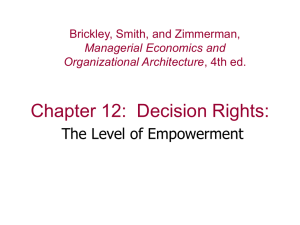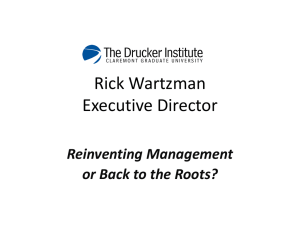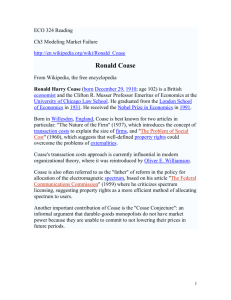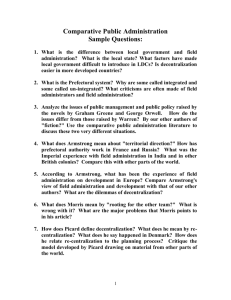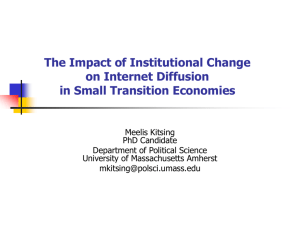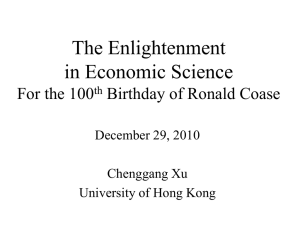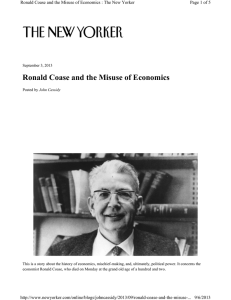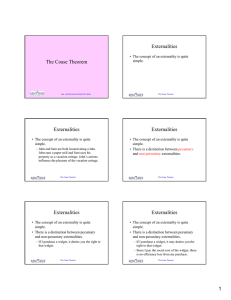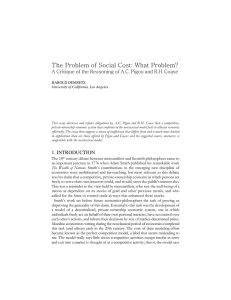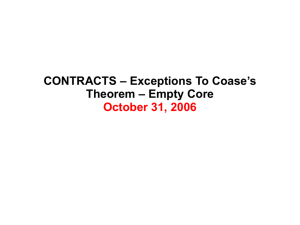Information and the Coase Theorem
advertisement
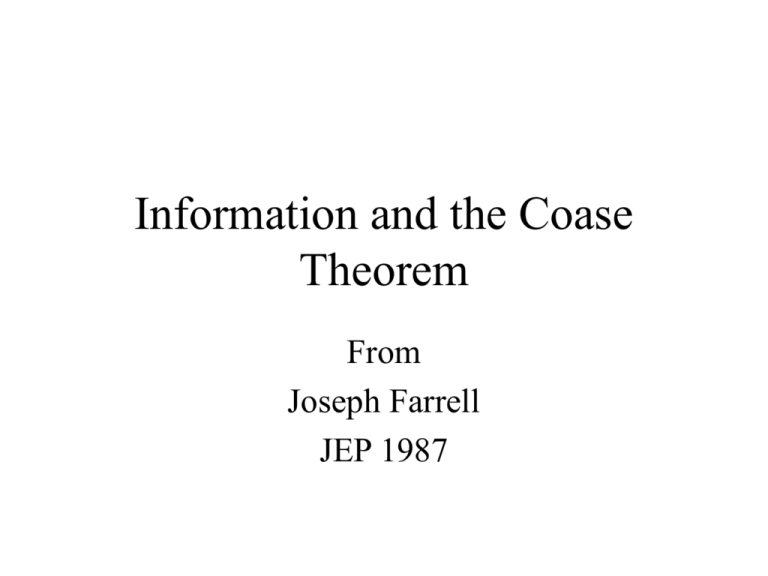
Information and the Coase Theorem From Joseph Farrell JEP 1987 The Coase Theorem and Decentralization Absent transaction costs, all must be well! • This is a decentralization result. It means that people will negotiate their way to efficiency. Holds even for the provision of public goods and the problem of monopoly. • But the welfare theorem says the same: Competitive equilibria with complete markets are efficient. Which one to choose from? Coase vs Perfect Competition • Coase: – No strong assumptions about convexity, pricetaking, and complete markets. – Strong assumptions about absence of transaction costs. “While the Coase theorem economizes on formal institutions, it demands a lot of coordination and negotiation.” Coase vs Perfect Competition • Perfect competition: – Efficient even though individuals act unilaterally. “With competitive markets, there is no need for coordination.” Coase vs Perfect Competition • It is fairly easy to tell when markets are not competitive: economies of scale, incomplete markets (externalities), market power, … • We also know that coordination and negotiation is difficult when too many individuals are involved. • But inefficiencies can remain with bilateral externalities and asymmetric information. Object of study Argue that 1. negotiations can fail when when people don’t know one another’s tastes or opportunities. 2. in this case, the Coase theorem fails as a decentralization result. 3. it is precisely in the case where people know each other well that decentralization is least interesting. The Coase theorem is thus of little use!? On the usefulness of decentralization results 1. They help us understand why there are inefficiencies. OK 2. They are used as arguments against gvt intervention. Not OK. Both the welfare and the Coase theorems state that “…in ideal circumstances, the laissez-faire outcome is no less Pareto-efficient than the ideal government-dictated outcome. But they do not claim that it is better;…” On the usefulness of decentralization results Only when there are imperfections can decentralization be better. But then one needs to convince us with a proper model. Hayek on knowledge • The main problem of society is to make the best use of its knowledge. • But knowledge is dispersed among all individuals. • Decentralization is useful only if it delegates decisions to better informed people. One thus wants to compare systems especially in the presence of private information. Getting information revealed • People often have reasons to lie about their true types (as with public goods). What if central authorities could devise a way to get people to reveal what they know? • Mechanism design: Offer people payments (or subsidies) which depend on the revealed information. Mechanism Design • Make people pay for the expected externalities that they create. • This leads people to reveal their true types and efficient outcomes. • But it works only when people are forced to participate. • Centralization is thus better?! • NB Assumes that the central authorities can manage all that information. (Hayek did not believe so.) Administrative vs Political decentralizations • Administrative decentralization: – Delegate some decisions to lower level bureaucrats. – No real advantage in the context of forced participation. – Probably worse since central planner has global view. Administrative vs Political decentralizations • Political decentralization: – People voluntary exchange with others. – But with private info, some people might prefer not to participate. – It is generally costly to efficiency to “bribe” people who would otherwise refuse to play. So why not have centralization? • Centralization helps – when decisions are interdependent. – by forcing recalcitrant people to participate. • Centralization fails when – it does not commit itself to its incentive scheme (e.g. rent-seeking) – it cannot properly process all the information (centralized schemes must remain relatively simple) A simple model
